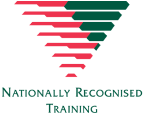
Schools Program
CHC30221 Certificate III in School Based Education Support
Assist teachers and support student learning in various classroom settings with the CHC30221 Certificate III in School Based Education Support.
Learn how to assist teachers and support student learning in a range of classroom settings
The CHC30221 Certificate III in School Based Education Support within our Schools Program is designed for students in years 10, 11 or 12 who are interested in beginning a career in education through supporting teachers in a range of classroom settings.
This qualification will equip you with the skills and knowledge you need to get into the classroom sooner, assisting teachers and supporting student learning. As a graduate of this course, you’ll have the foundation you need to complete general administrative and operational tasks to support students with learning under the guidance of a teacher or other educational professional—in either private or public schools.
Education support workers work mainly with students in primary or secondary schools, as defined by State/Territory legislation.
This course may be integrated with the school curriculum, to ensure you still receive your high school certificate upon graduation.

Course Outcomes
Successful completion of the CHC30221 Certificate III in School Based Education Support will enable you to apply for roles as a teacher aide or teacher’s assistant, as well as provide you with the framework you need to undertake further studies in education. This qualification equips you for roles such as:

Teacher Aide
A Teacher Aide supports classroom teachers with several non-teaching duties, such as preparing resources and teaching materials. Their duties include supervising students, monitoring their behaviour, and undertaking logistical tasks to ensure the efficient operation of the classroom.

Teacher's Assistant
Working under the guidance of classroom teachers, you will reinforce student learning by providing additional support to individuals or groups of students. As a Teacher’s Assistant, you will perform vital tasks to ensure the smooth running of the classroom, including performing administrative duties, creating lesson plans, preparing lessons, ensuring each student receives adequate educational support and documenting their progress.
Course Overview
Delivery Structure
Studying the Certificate III in School Based Education Support with Foundation Education is flexible and you can tailor it to suit your needs. The course is broken down into two parts:
1. THEORETICAL
The theoretical component of this course is delivered online and submitted through our Learning Management System. 15 course units to complete online, at your own pace.
2. WORK PLACEMENT
For mandatory work placement (100 hours), students must have access to a classroom environment catering to primary or secondary school students within at least one school in Australia, AND access to a qualified teacher who is employed at the school. Students must apply for their Working with Children Check at course commencement. Where required, we may assist you in identifying work placement options.
Units
Achieve your qualification by completing the following units of competency:

Want More Info?
Download our free Schools Brochure for more information or call 1300 959 540.
Proud member of

Funding
© Foundation Education | RTO Number 22557
